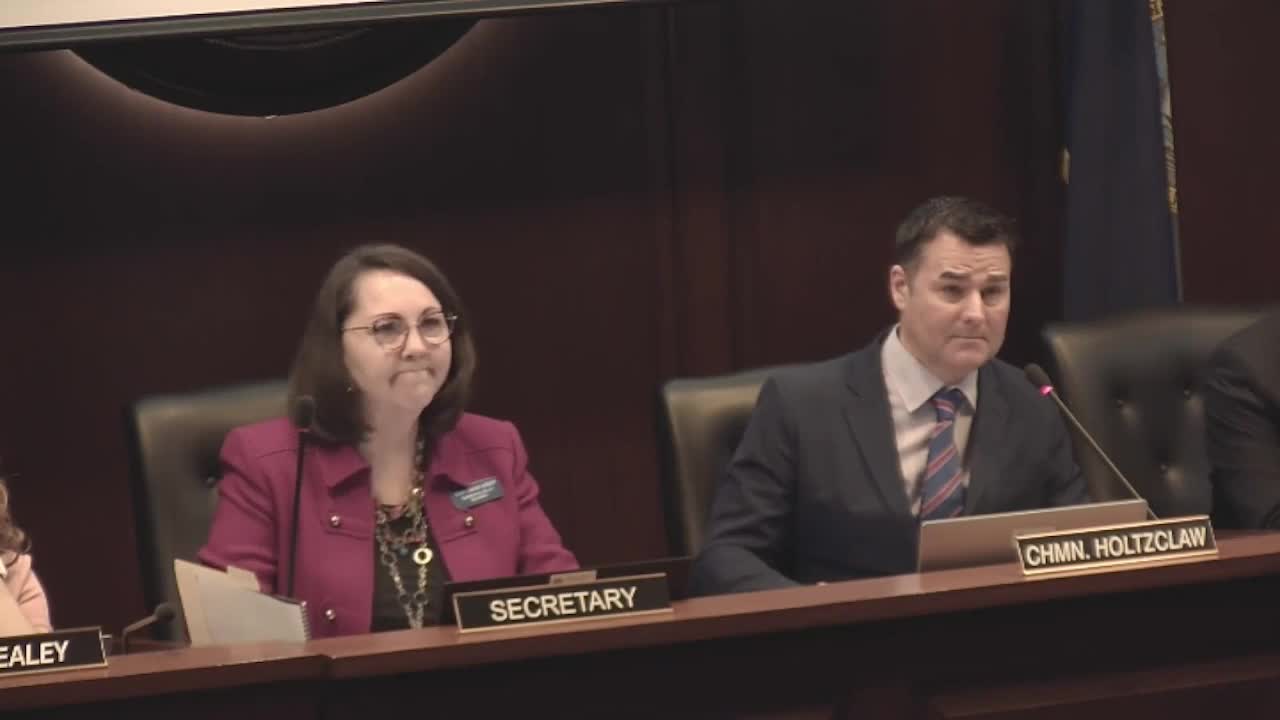Committee holds bill that would bar third‑party observation or recordings of workers’ compensation psychological testing
Get AI-powered insights, summaries, and transcripts
Subscribe
Summary
The House Commerce and Human Resources Committee on Wednesday held House Bill 115 after a lengthy hearing that split testimony from psychologists, attorneys and insurance representatives.
The House Commerce and Human Resources Committee on Wednesday held House Bill 115 after a lengthy hearing that split testimony from psychologists, attorneys and insurance representatives.
The committee voted 11‑4 to table the bill, which would amend Idaho Code Section 72‑433 to prohibit third‑party observation and audio or video recording during the standardized testing portion of psychological and neuropsychological independent medical examinations (IMEs) in workers’ compensation cases.
Supporters, including the bill sponsor, Representative Ben Furman, said the change is narrowly aimed at protecting test security and the scientific validity of standardized testing used to diagnose conditions such as traumatic brain injury and post‑traumatic stress. Representative Ben Furman introduced the measure and turned his allotted time to Dr. Joseph Black, a neuropsychologist who testified in favor.
Dr. Joseph Black said research shows observation and recording can change how examinees respond. "The presence of TPO, third party observation, including recording, actually materially affects the validity of those results in unreliable ways," Black told the committee. He described the testing portion as a standardized battery administered in a controlled environment and said preserving that standardization is necessary to produce valid data for diagnosis, causation and impairment ratings.
Black told lawmakers that "the testing itself has to be standardized" and compared contamination of a recorded test to contaminating a blood draw: "Why on earth would we contaminate a blood draw at the time of collection knowing you're introducing contaminants and then try to make any sense of what the data means." He also said current remedies exist for review — including retention of independent experts and depositions — without allowing observation or recording during testing.
Opponents argued the ability to observe or record the testing portion is necessary to ensure transparency in an adversarial process and to protect claimants. Kurt Holzer, an attorney representing the Idaho Trial Lawyers Association, urged the committee to hold the bill and warned that some portions of neuropsychological testing involve subjective scoring that can be reviewed only if the session is recorded or observed. "The only way you know whether that's a valid subjective evaluation is if it's recorded," Holzer said, adding that many contested cases require attorneys to be able to verify how testing was administered.
Other claimant‑side attorneys, including Evan Mortimer, also opposed the bill, calling recording and observation a straightforward way to protect due process for injured workers. Mortimer said he has seen reports in which testing procedures, as recorded, did not match the written report and that recording helps counsel identify deviations from protocol.
Representatives of employers and carriers gave mixed testimony. Mark Peterson, recently named chief legal officer of the State Insurance Fund and a member of the Industrial Commission advisory board, said the push to observe or record is a recent development in Idaho practice that can be used strategically to prevent testing from going forward: "If a claimant's counsel doesn't want the testing done, they can simply insist on recording or observing the testing portion. Because if a doctor follows the ethical guidelines ... they can't do the test if there's a third‑party observer or if it's audio recorded." Chris Wagner, a claims supervisor at Intermountain Claims, testified in favor of HB 115, describing administrative delays and scheduling problems when counsel demands attendance.
Committee members voiced concerns on both sides. Supporters emphasized protecting test security and preserving standardized conditions; critics emphasized claimants' due process and the practical need for independent verification in contested cases. Representative Cheatham moved to send HB 115 to the floor with a do‑pass recommendation; a substitute motion to table the bill was made and ultimately passed on roll call, 11‑4.
The committee did not adopt an amendment to the bill during the hearing. The substitute motion carried with 11 votes in favor and 4 opposed; those members voting yes included Chairman Holtzclaw, Representatives Vishniewski, Weber, McCann, Beissinger, Bruce, Burgoyne, Leavitt, Tanner, Egbert and Achilles. Those voting no included Representatives Cheatham, Healy, Kaler and Furman. The committee recorded the result as "motion passes 11‑4" and the bill was held in committee.
The hearing included technical discussion of how psychological and neuropsychological testing is structured, what portions are considered standardized testing, and what post‑exam remedies exist (expert review, depositions, re‑testing). Witnesses estimated tests can be lengthy — sometimes taking multiple sessions — and testified that reviewers can identify deviations from standardized administration by examining raw test data and reports.
Next steps: House Bill 115 remains in committee. Committee members said they wanted more time to weigh the competing concerns; one representative proposed holding the bill so the committee could gather additional information and hear further expert perspectives.
